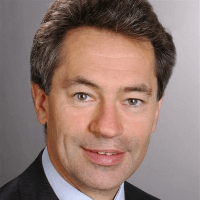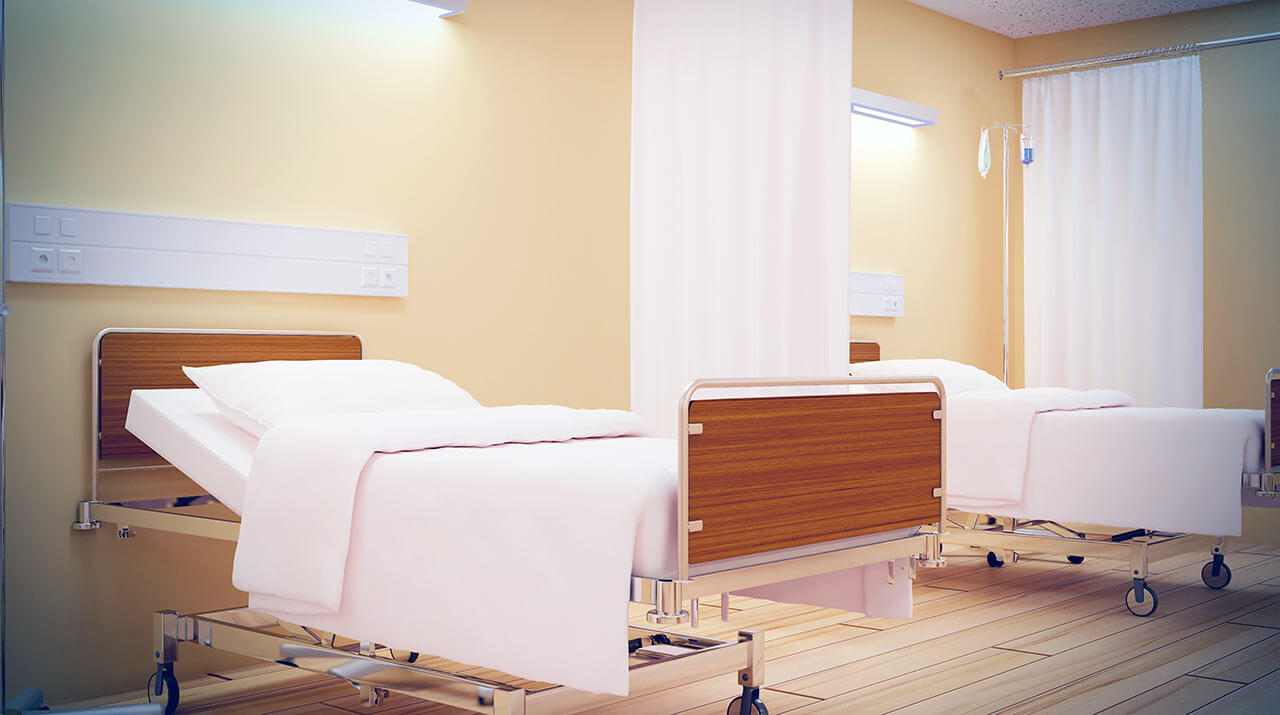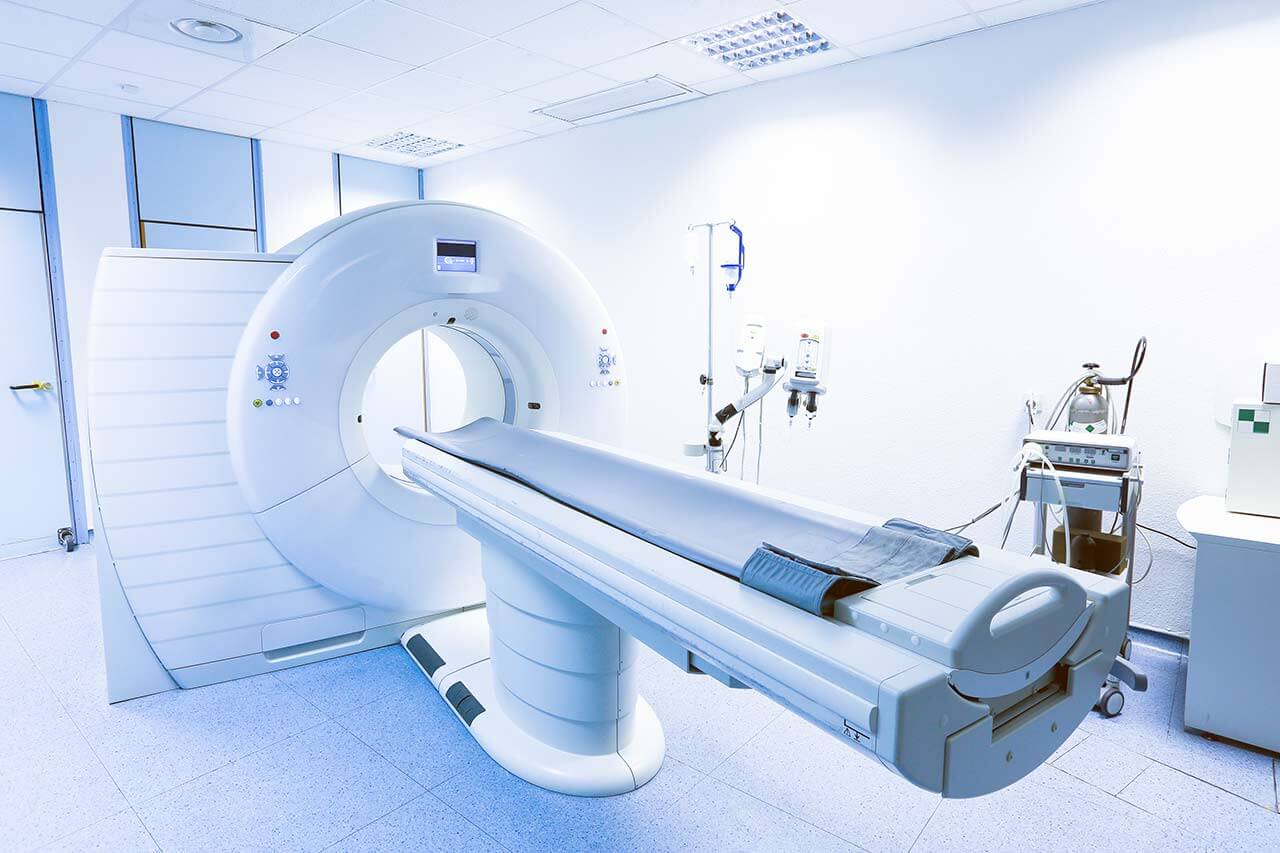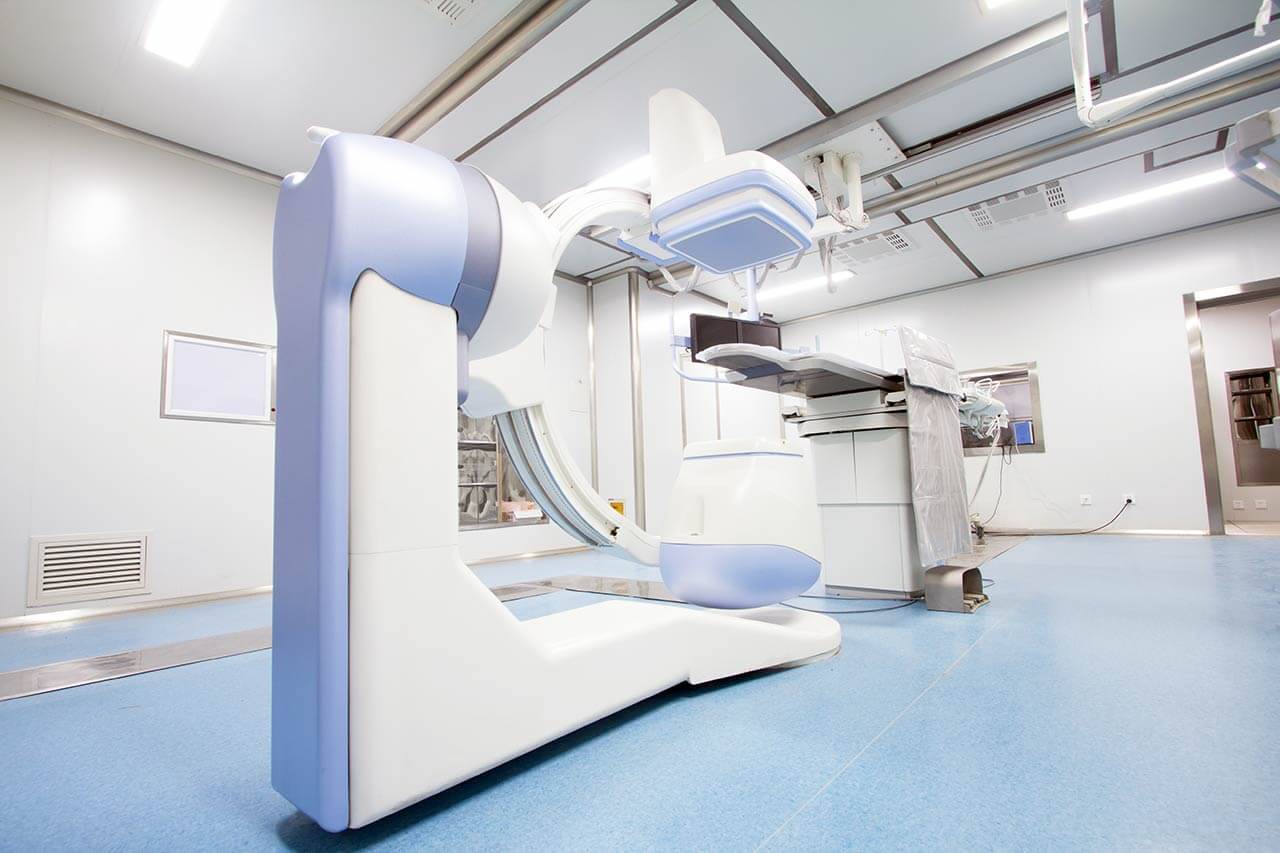
The program includes:
- Initial presentation in the clinic
- clinical history taking
- review of medical records
- physical examination
- laboratory tests:
- complete blood count
- general urine analysis
- biochemical analysis of blood
- TSH-basal, fT3, fT4
- tumor markers
- inflammation indicators
- indicators of blood coagulation
- CT scan / MRI of the abdomen
- abdominal ultrasound scan
- 1 course of chemotherapy:
- Cyclophosphamide or ifosfamide
- Cisplatin or carboplatin
- Vincristine
- Doxorubicin (Adriamycin)
- Etoposide
- Topotecan
- Busulfan and melphalan
- nursing services
- consultations of related specialists
- treatment by head doctor and all leading experts
- explanation of individual treatment plan
How program is carried out
During the first visit, the doctor will conduct a clinical examination and go through the results of previous laboratory tests and instrumental examinations. After that, you will undergo an additional examination, including laboratory assessment of liver and kidney function, ultrasound scan. Based on the received results, the doctor will elaborate the chemotherapy regimen. If necessary, related medical specialists will be involved in the elaboration of a treatment regimen (tumor board).
Chemotherapy is carried out as the inpatient procedure, with mandatory admission to the hospital. After the placement of a venous catheter, you will stay in a comfortable ward. An infusion system will be connected to the catheter, through which the required drug or a drug combination will be administered. All drugs are administered by intravenous drip, slowly, so the total duration of the infusion can be up to several hours. All this time, doctors and nurses will monitor your health condition closely.
After the course of chemotherapy, you will stay under medical supervision in the ward for a few more hours. After the completion of the chemotherapy course you will receive the medical report with detailed recommendations regarding further treatment. In the future, you will be able to have a distant consultation with your attending physician and schedule the next course of chemotherapy, if necessary.
Required documents
- Medical records
- Brain MRI/CT scan (not older than 3 months)
- Biopsy results (if available)
Service
You may also book:
 BookingHealth Price from:
BookingHealth Price from:
About the department
The Department of Pediatric and Adolescent Medicine at the University Hospital Greifswald provides the full range of diagnostic and therapeutic services in the area of its specialization. The medical facility admits newborn babies, young children, and adolescents with general, oncological, hematological, and neurological diseases, as well as with endocrine pathologies and metabolic disorders. The health of young patients is in the safe hands of a team of highly qualified specialists who have in their arsenal many modern diagnostic and therapeutic techniques. The department has a modern infrastructure to provide effective medical care to children and play areas that allow young patients to feel as comfortable as possible here. The department was awarded the prestigious Ausgezeichnet FÜR KINDER certificate, which indicates top-class medical care and the highest competence of medical personnel. In addition, the history of the medical facility is more than 100 years old, so it has long gained fame not only in Germany but throughout Europe.
The Head Physician of the department is Prof. Dr. med. Holger Lode. He is a world-famous, highly qualified expert in the area of his specialization. He conducts active research activities, the results of which are striking in their innovation and create opportunities for treating diseases that were previously considered incurable.
In the field of general pediatrics, special attention is paid to treating respiratory diseases, infections, allergic reactions, diseases of the gastrointestinal tract and kidneys, as well as rheumatic pathologies. Specialists from other departments at the university hospital are engaged in the therapeutic process, if necessary, which contributes to comprehensive and interdisciplinary medical care. The department has advanced equipment for comprehensive diagnostics of the child's body, and the current clinical protocols are strictly met here, thanks to which pediatricians regularly demonstrate high treatment success rates. A treatment regimen is developed individually for each patient. In most cases, children receive medical treatment using pills, ointments, gels, injections, infusions, etc. In certain pathologies of the digestive and respiratory systems, endoscopic procedures can also be performed.
An important place in the department’s clinical practice is occupied by pediatric oncology and hematology. All diagnostic and therapeutic interventions are carried out in compliance with the strictest standards of the German Society of Paediatric Oncology and Hematology (GPOH) and the quality criteria of the Federal Joint Committee for the Care of Children and Adolescents with Hematological and Oncological Diseases. As the university center, the department cooperates closely with other medical facilities in Mecklenburg-Vorpommern, which allows children to receive the best medical care indicated for their disease. Thanks to the close interdisciplinary cooperation of doctors with other departments at the University Hospital Greifswald, in particular with the Departments of Pediatric Surgery, Neurosurgery, Radiology, and Radiation Therapy, each child receives optimal therapy and individual care. In the course of treatment of solid tumors, doctors usually perform tumor resection, which may be supplemented by chemotherapy, radiation therapy, and other therapeutic measures. Chemotherapy is the first-line treatment for malignant blood diseases. Aggressive blood cancers often require a bone marrow transplant. The department's pediatric hematologists also specialize in treating benign diseases of the hematopoietic system, including various types of anemia and blood-clotting disorders.
The department offers a wide range of services in the treatment of young patients with endocrine diseases, diabetes mellitus, metabolic disorders, and puberty disorders. Of particular clinical interest to the department's specialists is the diagnostics and treatment of children with growth disorders, such as gigantism and short stature. As a rule, hormone tests and ultrasound scans are enough to make a diagnosis, after which the child is prescribed the optimal drug therapy under constant medical supervision. In addition, young patients with diabetes mellitus are regularly admitted to the department. Since diabetes mellitus is still an incurable disease, therapy is aimed at preventing the development of complications and improving the quality of life of the child. The department provides consultations for parents on the proper nutrition and lifestyle of their child, and here one can also learn how to use devices for self-monitoring of blood glucose levels. Treatment of endocrine disorders is mainly based on the intake of individually prescribed hormonal medicines.
The department also has unique experience treating neurological and neuromuscular diseases in children of various age groups. The department's pediatric neurologists most often treat young patients with chronic headaches, epilepsy, spasticity, cerebral palsy, and developmental disorders. Prior to starting treatment, the department's doctors carry out a physical examination and listen to the child's complaints, after which they prescribe comprehensive diagnostics to detect disorders in the functioning of the nervous system. The treatment tactics are determined depending on the neurological pathology. For example, the first-line treatment for epilepsy is drug therapy with the normalization of the daily routine and a special diet, and when treating cerebral palsy, physical therapy, massage, the author's rehabilitation techniques (the Bobath concept, the Vojta therapy, etc.), and orthotics come to the fore, which are complemented by concomitant drug therapy.
The department's main clinical activities include:
- General pediatrics
- Diagnostics and treatment of infectious diseases
- Exanthemic and non-exanthemic infections
- HIV/AIDS
- Tropical infections
- Complications after infectious diseases
- Complications after vaccination
- Diagnostics and treatment of respiratory diseases
- Bronchial asthma
- Acute and chronic bronchitis of various etiologies
- Lung malformations
- Mucoviscidosis (cystic fibrosis)
- Foreign body aspiration
- Diagnostics and treatment of allergic diseases
- Insect venom allergies
- Drug allergies
- Food allergies
- Atopic dermatitis
- Acute and chronic urticaria
- Diagnostics and treatment of gastrointestinal and liver diseases
- Crohn's disease and ulcerative colitis
- Coeliac disease
- Liver, bile duct and pancreatic diseases: infectious hepatitis, autoimmune hepatitis, primary sclerosing cholangitis, Wilson-Konovalov disease, and pancreatitis
- Diseases caused by food intolerance: carbohydrate malabsorption, food intolerance, etc.
- Eating disorders, including eating problems (a necessity for feeding tube placement)
- Diagnostics and treatment of rheumatic diseases
- Diagnostics and treatment of kidney diseases
- Diagnostics and treatment of heart diseases
- Diagnostics and treatment of infectious diseases
- Pediatric oncology and hematology
- Diagnostics and treatment of malignant diseases
- Blood cancer
- Acute lymphocytic leukemia, including recurrent forms
- Acute and chronic myeloid leukemia
- Non-Hodgkin's lymphoma
- Hodgkin's disease
- Anaplastic large cell lymphoma, including recurrent forms
- Solid malignant tumors
- Liver cancer (hepatoblastoma)
- Nephroblastoma
- Neuroblastoma
- Osteosarcoma
- Ewing's sarcoma
- Soft tissue sarcomas
- Craniopharyngioma
- Brain tumors, including recurrent forms
- Choroid plexus tumors
- Langerhans cell histiocytosis
- Nasopharyngeal cancer
- Blood cancer
- Diagnostics and treatment of benign blood diseases
- Spherocytosis
- Autoimmune hemolytic anemias
- Iron deficiency anemia
- Transient erythroblastopenia of childhood
- Fanconi anemia
- Severe aplastic anemia
- Neutropenia (for example, Kostmann syndrome, cyclic neutropenia, and autoimmune neutropenia)
- Blood clotting disorders
- Quantitative or qualitative platelet disorders
- Disturbances in plasma coagulation factor levels
- Thrombophilia
- Diagnostics and treatment of malignant diseases
- Pediatric endocrinology
- Diagnostics and treatment of endocrine disorders
- Thyroid gland and adrenal diseases, adrenogenital syndrome
- Diabetes mellitus
- Obesity and its complications
- Puberty disorders
- Growth disorders
- Diagnostics and treatment of endocrine disorders
- Pediatric neurology
- Diagnostics and treatment of nervous system diseases
- Epilepsy, including complex forms
- Cerebral palsy
- Chronic headaches
- Psychomotor developmental disorders
- Diagnostics and treatment of nervous system diseases
- Other medical services
Curriculum vitae
Higher Education and Postgraduate Training
- 1986 - 1993 Human Medicine studies, University of Tuebingen (Germany) and Brown University (Providence, Rhode Island, USA).
- 1993 State exam and thesis defense with honors, University of Tuebingen.
- 1995 Admission to medical practice, State Medical Association of Baden-Wuerttemberg.
- 2003 Board certification in Pediatric and Adolescent Medicine.
- 2003 Habilitation and teaching at the university in Pediatric and Adolescent Medicine, Charite University Hospital Berlin.
- 2005 Additional qualification in Pediatric Intensive Care.
- 2006 Specialization in Pediatric Oncology and Hematology.
- 2008 Extraordinary Professorship, Charite University Hospital Berlin.
Professional Career
- 1994 - 1996 Clinical and Research Fellow, Department of General Pediatrics, Hematology and Oncology, University Hospital Tuebingen.
- 1996 - 1999 Postdoctoral Fellowship from the German Research Foundation, Scripps Research Institute, Department of Immunology, Tumor Immunology Laboratory.
- 1999 - 2000 Assistant Professor, Scripps Research Institute, Department of Immunology, Tumor Immunology Laboratory.
- Since 2000 Clinical and Research Fellow, Department of Pediatric and Adolescent Medicine (focus on bone marrow transplantation), Charite University Hospital Berlin.
- 2004 - 2009 Managing Senior Physician, Department of General Pediatrics, Section of Pediatric Hematology and Oncology, Charite University Hospital Berlin.
- 2005 - 2009 Deputy Head, Department of Pediatric and Adolescent Medicine (focus on bone marrow transplantation), Charite University Hospital Berlin.
- 2009 - 2010 Representative of the W3 Professorship in General Pediatrics, Faculty of Medicine, University of Greifswald.
- Since 2010 W3 Professor in Pediatric and Adolescent Medicine and Head Physician of the Department of Pediatric and Adolescent Medicine at the University Hospital Greifswald.
Research Activities and Scientific Contribution
Prof. Lode was awarded a Research Fellowship from the German Research Foundation in 1996, which he used for his postdoctoral training at the Scripps Research Institute, La Jolla, CA in tumor immunology. In 1999, he joined the Scripps Research Institute as a Junior Faculty Member, where he created a tumor model to study immunotherapeutic approaches in a deadly and life-threatening childhood cancer (neuroblastoma). He demonstrated that treatment with immunocytokines, which are antibody-cytokine fusion proteins, is effective in this model and that this approach is synergistic with angiogenesis inhibition and tumor vaccines. This groundbreaking discovery has been approved for clinical application and is subject to ongoing clinical trials (PM Sondel). In 2000, he continued his training in Pediatrics at the Charite University Hospital Berlin. At the same time, he was awarded an Emmy Noether Fellowship from the German Research Foundation with a focus on immunotherapy for neuroblastoma. During this period, he developed new approaches by means of genetic vaccination to treat malignant disease. In particular, combinations of DNA vaccines with the introduction of a tumor-specific immunocytokine are an important discovery for increasing the effectiveness of DNA vaccination. In 2002, he became a Member of the SIOPEN group and got involved in the clinical development of a monoclonal antibody directed against ganglioside GD2 (ch14.18/CHO). Professor investigated for the first time a novel delivery method of this antibody (patent), and he is currently leading two international clinical trials with this antibody.
Prizes, Awards and Honors
- 1998 Young Investigator Award, American Association for Cancer Research, 89th Annual Meeting, New Orleans, Louisiana.
- 1998 Young Investigator Award for Achievements in Neuroblastoma Research, UK.
- 2000 Heinrich Finkelstein Prize from the North German Society for Pediatric and Adolescent Medicine, Luebeck.
- 2005 Science4life, Venture Cup.
- 2007 American Society of Clinical Oncology Award of Merit.
Memberships in Professional Societies
- German Society for Pediatric and Adolescent Medicine (DGKJ).
- German Society for Pediatric Oncology and Hematology (GPOH).
- International Society of Pediatric Oncology Europe Neuroblastoma (SIOPEN).
- American Association for Cancer Research.
- American Society of Hematology.
- American Association of Immunologists (AAI).
- American Society of Clinical Oncology (ASCO).
- Since 2013 Member of the SIOP Scientific Programme Advisory Committee (SPAC) of the International Society of Pediatric Oncology European Neuroblastoma Study Group (SIOPEN), Chairman of the Immunotherapy Committee and the Executive Board Member of SIOPEN.
Reviewer Activities
- Journal of Immunology.
- Blood.
- Cancer Research.
- Cancer Gene Therapy.
- Clinical Cancer Research.
- Oncogene.
Photo of the doctor: (c) Universitätsmedizin Greifswald
About hospital
According to the reputable Focus magazine, the University Hospital Greifswald is included in the ranking of the best medical complexes throughout Germany!
The hospital is one of the oldest healthcare facilities in Germany, with long traditions and an excellent reputation. The history of the hospital begins in 1456, when the Faculty of Medicine at the University of Greifswald was founded. During this time, the hospital has managed to earn recognition in the national medical arena and gain prestige abroad. The hospital has 19 institutes and 21 specialized departments. The key to successful clinical practice is the combination of state-of-the-art equipment and highly qualified medical personnel who are actively engaged in the development of effective medical techniques and implement them in everyday practice.
The medical team of the university hospital has more than 4,400 employees, including world-famous professors who regularly undergo advanced training in the leading European and American hospitals, where they share their experience with foreign specialists. The doctors at the medical facility annually treat about 180,000 patients. At the same time, the specialists often provide medical care to patients with complex clinical cases, even in those cases that doctors at other medical centers consider hopeless. The hospital has more than 1,000 beds for inpatients, and many highly-specialized outpatient clinics are available in the medical facility for counseling and outpatient medical care.
The hospital presents all the fields of modern medicine. According to Focus magazine, the medical complex is recognized as one of the best in Germany for treating bowel cancer, bladder cancer, malignant brain tumors, skin cancer, multiple sclerosis, Parkinson's disease, dementia, cardiovascular pathologies, knee and hip pathologies, as well as ophthalmic and proctologic diseases. Diagnostic and therapeutic procedures are carried out in strict accordance with national and international standards, which ensures top-class medical care.
The medical team at the hospital makes sure that each patient feels as comfortable as possible during the therapeutic process. Doctors and nursing staff show humanity and understanding, striving to support each patient in every possible way on the path to recovery.
Photo: (с) depositphotos
Accommodation in hospital
Patients rooms
The patients of the University Hospital Greifswald live in comfortable single and double rooms. The patient rooms are made in bright colors and are quite cozy. The furnishings of a standard patient room include an automatically adjustable bed, a bedside table, a TV, and a telephone. The patient room has a table and chairs for receiving visitors. There is also free Wi-Fi in the patient rooms.
If desired, patients can live in enhanced-comfort rooms. In such rooms, patients are additionally offered toiletries, a bathrobe, and a change of towels.
Meals and Menus
The patients of the hospital are offered three healthy and tasty meals a day: a buffet breakfast, a hearty lunch, and dinner. The hospital also houses a cafeteria where one can have a tasty snack, a cup of aromatic coffee, tea, or soft drinks.
Patients staying in enhanced-comfort rooms are offered a special menu with a wide range of main courses, appetizers, desserts, and drinks.
Further details
Standard rooms include:
Religion
The services of representatives of religions are available upon request.
Accompanying person
Your accompanying person may stay with you in your patient room or at the hotel of your choice during the inpatient program.
Hotel
You may stay at the hotel of your choice during the outpatient program. Our managers will support you for selecting the best option.




